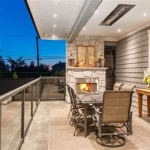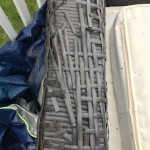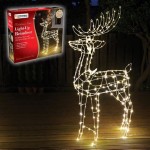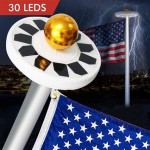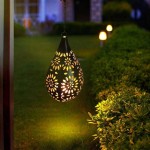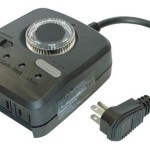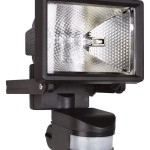Can An Outdoor Light Be Used Indoors?
When planning your lighting scheme, you may wonder whether you can use an outdoor light fixture indoors. The answer depends on several essential aspects, including the fixture's design, materials, and intended use. This article will explore the crucial factors to consider when using an outdoor light indoors, ensuring the safety, functionality, and aesthetic appeal of your lighting design.
Design and Construction
Outdoor light fixtures are designed to withstand harsh weather conditions, such as rain, snow, and extreme temperatures. They typically have sturdy construction with weather-resistant materials like cast aluminum, stainless steel, or resin. The enclosures are sealed to prevent moisture penetration, and the components are usually coated with protective finishes to resist corrosion. Indoor light fixtures, on the other hand, are designed for a more controlled environment and may not have the same level of weatherproofing and durability.
Electrical Requirements
Outdoor light fixtures are often wired to accommodate higher voltages and operate with different electrical standards than indoor fixtures. Using an outdoor fixture indoors may require modifications to the electrical system to meet safety codes. Additionally, outdoor fixtures may have specific grounding requirements, which must be properly installed to prevent electrical hazards.
Heat Dissipation
Outdoor light fixtures are designed to dissipate heat efficiently to prevent overheating and damage to the fixture and its surroundings. Indoor fixtures may not have the same heat dissipation capabilities, especially if they are enclosed or have limited ventilation. Using an outdoor fixture indoors with high-wattage bulbs or enclosed in a confined space can lead to heat buildup and potential fire hazards.
Aesthetics and Functionality
While outdoor light fixtures can provide adequate illumination indoors, their aesthetics and functionality may not always be suitable for interior spaces. Outdoor fixtures often have a more industrial or utilitarian design, which may not complement the decor of a home or office. Additionally, the light distribution and intensity of outdoor fixtures may not be optimal for indoor use, as they are typically designed to provide wide-angle illumination for outdoor areas.
Damp or Wet Locations
If you intend to use an outdoor light fixture in a damp or wet location indoors, such as a bathroom or kitchen, it is crucial to choose a fixture that is specifically rated for damp or wet locations. These fixtures are designed to withstand moisture and water exposure without compromising safety or functionality.
Conclusion:
Using an outdoor light fixture indoors requires careful consideration of its design, construction, electrical requirements, heat dissipation, aesthetics, and suitability for the intended use. While some outdoor fixtures can be adapted for indoor use with proper modifications, it is generally advisable to choose light fixtures specifically designed for indoor applications to ensure safety, optimal performance, and aesthetic appeal.
What Is The Difference Between Indoor And Outdoor Lighting Bbier Ledlighting Quora

Indoor Vs Outdoor Lighting Are They Interchangeable Kirby Electric

Can Outdoor Lights Be Used Indoors Led Lighting Info

2 X Wall Light Indoor Outdoor Modern Up Down Design 6 W Led Aluminium 3000 K Warm White Waterproof Ip65 Lights For Bedroom Home H Fruugo De

Indoor And Outdoor Light Bulbs Pacific Lamp Supply Company

Led Indoor Outdoor Wall Light 24w 3000k Warm White Lamp Modern Ip65 Waterproof Lights With Up And Down Adjustable Bea Fruugo De

Indoor Outdoor Wall Lamp Roof White Lightinova Professional Lighting

How To Light A Modern Patio Ideas Advice Lamps Plus

Heavy Duty Solar Shed Light Dimmable 3 Power Modes Outdoor Indoor Use

Homevenus Smart Dimmable Cool Warm White Outdoor Indoor 36 Ft Plug In Novelty Bulb String Light Sl 2w 003 The Home Depot
